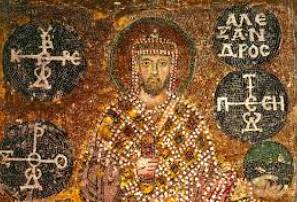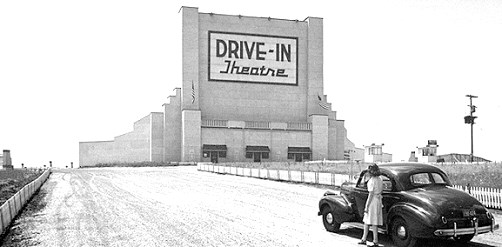June 6th is

Applesauce Cake Day
D-Day *
Drive-in Movie Day *
Eyewear Day
National Higher Education Day *
National Yo-Yo Day *
UN Russian Language Day *
_________________________________________
MORE! Diego Velázquez, Maxine Kumin and Aleksandr Pushkin, click
_________________________________________
WORLD FESTIVALS AND NATIONAL HOLIDAYS
France – Bayeux: Bayeux War Cemetery, D-Day
Commonwealth War Graves Commission Service

Iran – Martyrdom of Imam Ali
North Korea –
Children’s Union Foundation Day
Russia – Pushkin’s Birthday *
South Korea – Hyun Choong II
(Memorial Day)
Sweden – Nationaldagen *
(National Day)
_________________________________________
On This Day in HISTORY
913 – Byzantine Emperor Alexander III, reported to be lazy, lecherous, and a drunkard, dies at age 42 of exhaustion after playing tzykanion (polo) and is succeeded by his 8-year-old nephew Constantine VII

1523 – Gustav Vasa, the Swedish regent, is elected King of Sweden, ending the Kalmar Union of Denmark, Norway and Sweden; celebrated as Nationaldagen * in Sweden
1586 – After the English and the Dutch rebels sign the Treaty of Nonsuch, forming an alliance in 1565, King Philip II of Spain declares war on England; Sir Francis Drake leaves quickly on an expedition to attack Spanish colonies; on June 6, his ships raid the fort of San Augustín in Spanish Florida

Sir Francis Drake’s fleet attacking St. Augstin, Spanish Florida – 1586
1599 – Diego Velázquez born, the leading 17th-century painter of Spain’s ‘Golden Age’

Las Meninas, by Diego Velázquez (Prado)
1606 – Pierre Corneille, influential 17th century French dramatist; Le Cid
1644 – The Qing dynasty Manchu forces led by the Shunzhi Emperor capture Beijing during the collapse of the Ming dynasty
1654 – Queen Christina abdicates the Swedish throne and is succeeded by her cousin Charles X Gustav, in part because she wants to convert to Roman Catholicism
1755 – Nathan Hale born, American Revolutionary War soldier/spy; captured by the British and hanged; famous for his last words, reported as: “I only regret that I have but one life to lose for my country”
1756 – John Turnbull born, American artist, noted for paintings of significant events in American history; Declaration of Independence

1799 – Aleksandr Pushkin * born – Russia’s premiere Romantic author and poet; founder of modern Russian literature (see also 2010 entry)

1808 – Joseph Bonaparte, brother of Napoléon, who had been happy as King of Naples and Sicily, reluctantly becomes King of Spain and the Indies; he is unpopular with the Spanish, who revolt against French rule, sparking the Peninsular War
1822 – Alexis St. Martin, employed by the American Fur Company on Mackinac Island, is accidentally shot by a shotgun loaded with buckshot; Army surgeon William Beaumont treats his wounds, not expecting him to live, but St. Martin survives, even with a fistula (hole) in his stomach that never fully heals. Dr. Beaumont hires him as a handyman, but is soon making observations and conducting experiments on his stomach, discovering stomach acid, and that digestion is primarily a chemical process; Beaumont publishes an account of his work, Experiments and Observations on the Gastric Juice, and the Physiology of Digestion, in 1833, becoming the “Father of Gastric Physiology”
1826 – Sarah Parker Remond born, African-American abolitionist, inspiring orator, American Anti-Slavery Society agent in England during Civil War, gathers support for anti-slavery cause and the Union Army, later moves to Italy and becomes a physician

1841 – Eliza Orzeszkowa born, Polish author of novels, sketches, and dramas; Nobel Prize nominee in 1905; activist with the Positivism movement during the foreign Partitions of Poland; worked to improve social conditions in Poland; noted for Nad Niemnem (Upon the Niemnem)
1842 – Steele MacKaye born, first American actor to play Hamlet on the London stage, co-founder of the Lyceum Theatre School, which becomes the American Academy of Dramatic Arts; inventor with over 100 patents, including a folding theatre seat and flame-resistant stage curtains; founder of New York’s St. James and Lyceum Theatres
1844 – The Young Men’s Christian Association (YMCA) is founded in London
1844 – The Glaciarium opens, world’s first mechanically frozen ice rink
1875 – Thomas Mann born, German author and critic, 1929 Nobel Prize laureate

1892 – Donald F. Duncan Sr. born, founder of the Duncan Toys Company, best known as the biggest commercially successful manufacturer of the Yo-Yo
1894 – Governor Davis H. Waite orders the Colorado state militia to protect and support the miners engaged in the Cripple Creek miners’ strike, a victory for the union, and the only time in U.S. history that a state militia is called out in support of striking workers
1898 – Ninette de Valois born, English ballerina, choreographer/director, founder of The Royal Ballet, and the Royal Ballet School in Great Britain
1901 – Joyce Anstruther born, English writer who published under the pen name Jan Struther, and also wrote hymn lyrics; contributor to Punch magazine and wrote a fortnightly column for The London Times, where she created the character of Mrs. Miniver, who became so popular that the columns were published as a book in 1939, which inspired the screenwriters of the Academy Award-winning film Mrs. Miniver; her best-remembered hymn, written for children, is “Lord of All Hopefulness”
1903 – Aram Khachaturian born, Armenian composer and conductor
1918 – The U.S. Marine Corps suffers its worst single day’s casualties during the Battle of Belleau Wood
1921 – London’s Southwark Bridge is opened by King George V and Queen Mary
1923 – “V.C.” Andrews born, American author of Gothic horror family sagas; her best-known book is Flowers in the Attic
1925 – Maxine Kumin born, American poet and author, Poet Laureate Consultant in Poetry to the Library of Congress (1981-82)

1925 – Frank Chee Willeto born, American politician and WWII Navajo code talker with the 6th Marine Division at Saipan and Okinawa – the role of the code talkers was not revealed until it was declassified in 1968; served as Vice President of the Navajo Nation (1998-1999); he and the other surviving Navajo code talkers were awarded the Congressional Silver Medal in 2001

1932 – Revenue Act of 1932 establishes the first U.S. gas tax, one cent per gallon sold
1933 – Drive-in Movie Day * is the anniversary of the opening first drive-in theater, Hollingshead’s Drive-In in Camden, New Jersey

1934 – President Franklin D. Roosevelt signs the Securities Act of 1933 into law, establishing the U.S. Securities and Exchange Commission
1939 – Marian Wright Edelman born, lawyer and activist, founder and president of the Children’s Defense Fund

1941 – Alexander Cockburn born in Scotland, and grew up in Ireland; Irish-American political journalist and columnist; co-editor of the political newsletter Counter-Punch; wrote the “Beat the Devil” column for The Nation, and another column for London’s The Week; particularly outspoken against American and British policies against and invasion of Iraq, and also conspiracy theories, especially those revolving around the Kennedy assassination and 9/11
1942 – During the Battle of Midway, U.S. Navy dive bombers sink four Japanese carriers and the cruiser Mikuma
1944 – D-Day * – the landing of Allied troops on the beaches of Normandy, Operation Overlord, a huge amphibious assault, marking the beginning of the final phase of WWII in Europe
1948 – Arlene J. Harris born, inventor and entrepreneur, holder of numerous wireless patents; co-founder of Cellular Business Systems Inc (CBSI) who guided development of the leading billing/CRM service bureau and the first automated cellular service activation systems, now used worldwide, and participated in development of intersystem roaming protocols; first woman inductee to Wireless Hall of Fame (2007)
1950 – Chantal Akerman born, Belgian film director, artist and professor of film at City College of New York; her best-known film is Jeanne Dielman, 23 quai du Commerce, 1080 Bruxelles
1951 – Marietta Giannakou born, Greek neuropsychologist at the University of Athens Faculty of Medicine before she entered politics; New Democracy politician since 1990; Minister for Health, Welfare and Social Security (1990-1991); Minister for National Education and Religious Affairs (2004-2007); Greek New Democracy member of the European Parliament (2009-2014)

1954 – In Moscow, a ceremony is held for the monumental sculpture of Yuriy Dolgorukiy, claimed as the city’s founder in 1147, although evidence points to a settlement there at least 200 years earlier
1962 – The Beatles record “Love Me Do” during their first recording session at Abbey Road Studios
1965 – The Rolling Stones release “(I Can’t Get No) Satisfaction” in the U.S.
1971 – The Soviet Soyuz 11 is launched, the only manned mission to board the world’s first space station, Salyut 1
1972 – Natalie Morales born, American television journalist at NBC; Today Show West Coast anchor since 2016
1973 – Patrick Rothfuss born, American author of epic fantasy, know for The Kingkiller Chronicle series; won the 2007 Quill Scifi/Fantasy/Horror Award for his debut novel, The Name of the Wind

1978 – California voters overwhelmingly approve Proposition 13, a ballot measure for major cuts in rapidly escalating property taxes, a major revenue source for public schools; California currently ranks 41st in the nation in quality of public education
1982 – The Lebanon War begins as forces under Israeli Defense Minister Ariel Sharon invade southern Lebanon in “Operation Peace for the Galilee”
1985 – The body of “Wolfgang Gerhard” is exhumed in Brazil; tests prove it is Josef Mengele, Auschwitz’s infamous “Angel of Death”
1990 – The first National Yo-Yo Day * is launched by Daniel Volk, the “Yo-Yo Man” in honor of Donald F. Duncan’s birthday
1995 – Pink Floyd releases its two-CD album Pulse in the U.S.
2004 – Tamil is established as a “classical language” by the President of India, Dr A. P. J. Abdul Kalam, in a joint sitting of the two houses of the Indian Parliament

2005 – In Gonzales v. Raich, the U.S. Supreme Court upholds a federal law banning cannabis, including medical marijuana
2010 – UNESCO establishes Russian Language Day * on the anniversary of Aleksandr Pushkin *, the “Father of modern Russian Literature,” as one of the International Mother Language Days which celebrate multilingualism and cultural diversity and promote equal use of the six UN official working languages throughout the organization (see also 1799 entry)

2015 – The first National Higher Education Day *
2016 – U.S. media reports Hillary Rodham Clinton is the presumptive Democratic nominee for President, the first female nominee of a major party in the 240-year history of America

_________________________________________

Been thinking a lot about D-Day. It was a terrible time, but the real beginning of the end for the Nazi control of Europe. Pvt. Bill Millin, piper for Lord Lovat, piped the troops ashore on Sword Beach. The Lord Lovat held the rank of Brigadier General. He was not a desk general. He led from the front. Sword Beach was just north of Omaha Beach. The tune Lord Lovat told piper Bill Millin to play was “Road to the Isles.”
I seem to recall reading that Lord Lovat gave the order to his piper in spite of the British Command telling him “no pipes.”
True. Millin replied that the British War Office had ruled pipes were not to be played on the battlefield. They feared the piper would be a high profile target.
Lord Lovat was quoted as replying, “Ah, but that is the English. We are Scottish.”
Millin aired up his pipes and began playing.
A short documentary with the only known photo of Piper Bill Millin just as he and his fellow commandos were disembarking from their Higgins boat at Sword Beach. Lord Lovat can be seen in the picture as well. He lead his commandos from the front.